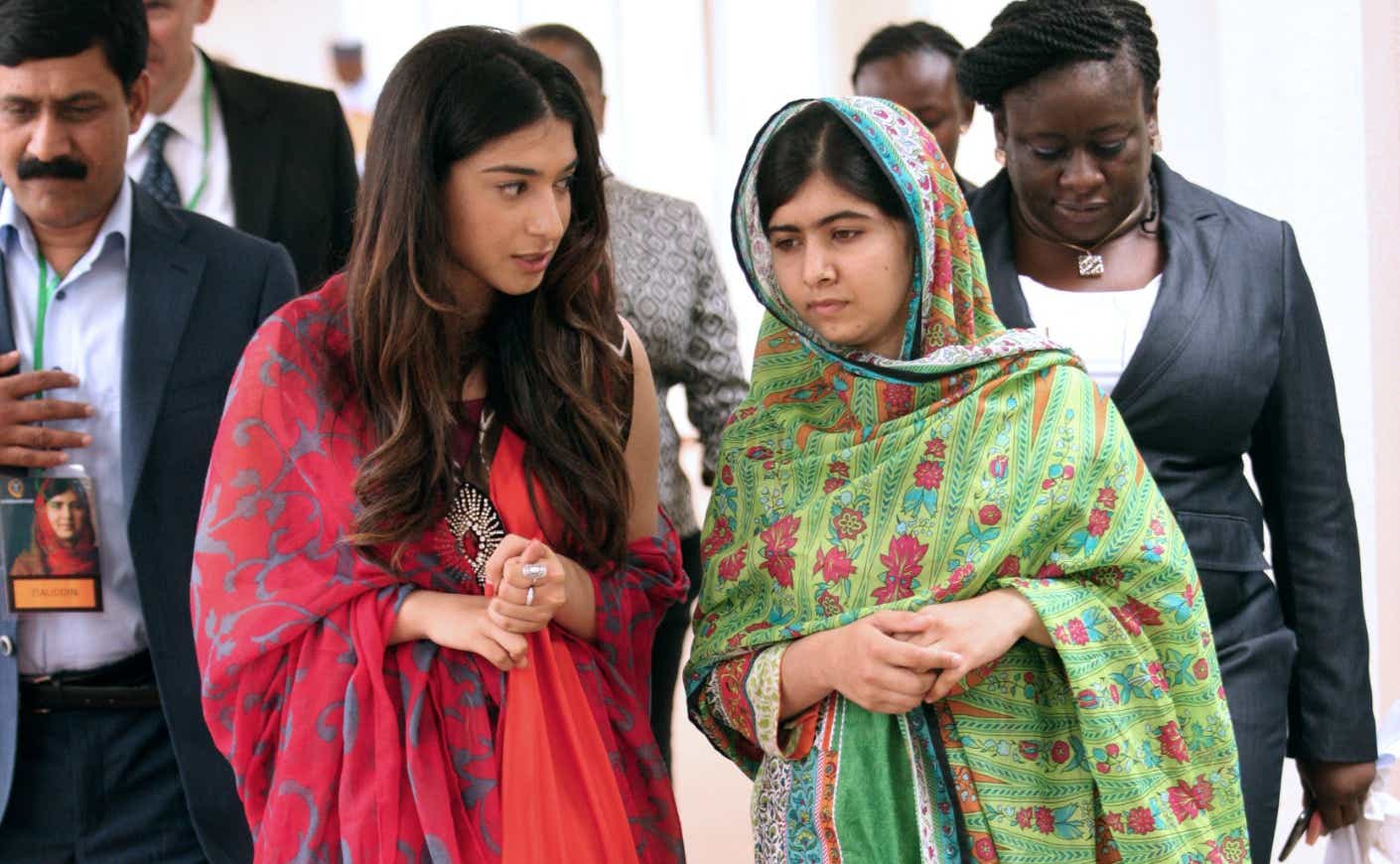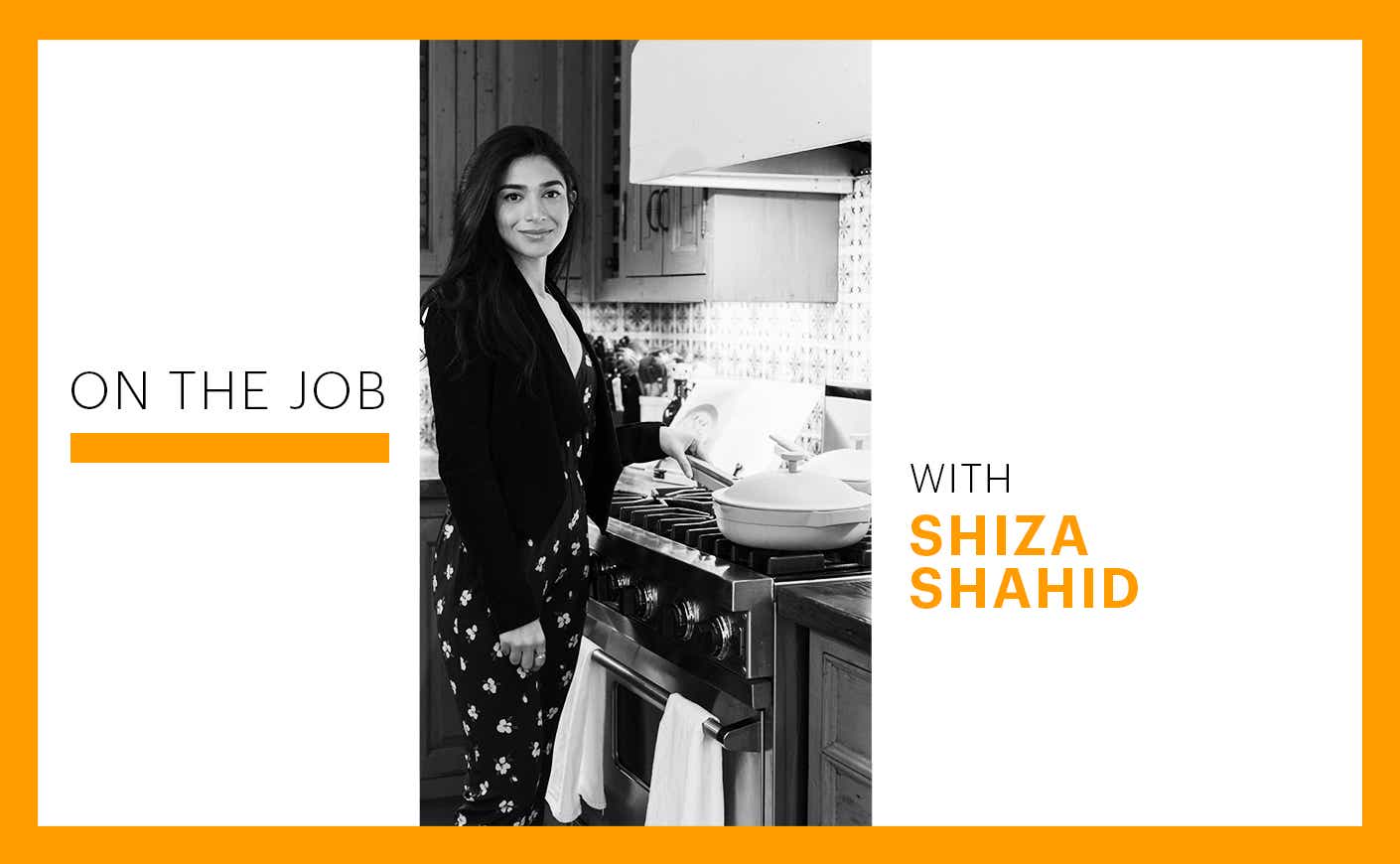If you’ve recently found yourself envying the gorgeous, versatile cookware in someone’s picture-perfect kitchen shots on Instagram, chances are high you were looking at a product from Our Place. The company’s insanely popular Always Pan changed the game with its impressive multifunctionality — with a single 8-in-1 piece, you can steam, strain, saute, boil, braise, and more. And with beautiful color options like sage, lavender, and terracotta, you’ll look great while doing it.
Shiza Shahid, the company’s co-founder and co-CEO, is just as remarkable as her products. Born and raised in Pakistan, she first made a splash as a co-founder of the Malala Fund, which she helped launch after her close friend, Malala Yousafzai, was shot by the Taliban in retaliation for her activism in support of women and girls. From there, she started Our Place with the goal of creating a mission-driven business dedicated to bringing people together.
“Our Place is really about the power of connecting around a home-cooked meal,” she said. “I'm an immigrant, and so is my partner, and we literally found our place in America by cooking and sharing food and having people come over and breaking bread together. We believe that when you share a meal with someone, it connects you to each other, it connects you to your identity, it connects you to your heritage, it connects you to your food systems, your farmers.”
Kitchenware may not seem like the obvious next step after an education-focused nonprofit, but Shahid says leading with purpose connects Our Place to her previous work.
“People have been trying to put me in a box my entire life, and they still are,” she said. “It wasn’t easy for me to raise money for Our Place. People saw me as a nonprofit person, and I knew that and I wanted to break out of that box. Yes, I can build a global nonprofit, but I can also build a global business that is driven by its mission and values.”
With so much diverse experience, Shahid has a wealth of knowledge about navigating a career through pivots and unexpected turns, all while maintaining a bigger vision of making a meaningful societal impact. We caught up with her to get some invaluable advice about changing lanes, dealing with your doubters, and having uncomfortable conversations with your colleagues.
How do you approach making one great product that takes the place of several others?
We worked on the Always Pan for two years before launching it, and we’re still constantly testing, getting feedback, and learning. We’ve taken those same design principles and applied them to the Perfect Pot. One category at a time, we look at the ways in which people cook and gather and say, “What are the challenges? And how do we make this simpler?” If we're saying we want to get more people cooking, we've got to make cooking easier and more approachable and more accessible.
When you have an ambitious idea like that, how do you respond to people who don’t see your vision for how it’s going to work?
I don’t know that you need to convince everybody. If you have conviction in your ideas, then bring them to life, and people will see. Whenever I can, I give my products to people because I know what will happen when they try it. Even if you never wanted a really great knife, you’ll pick up our chef’s knife and hold it and think, “Wow, I didn’t know this is what a knife that actually makes slicing easier feels like.” We have a lot of belief in our products, and when people try them, they understand.
In many ways, this feels so different from what you’ve done with the Malala Fund. How did you decide pivoting to cookware was the right next step?
My very first volunteer job was carrying medical supplies into a prison in Islamabad, in Pakistan, for women prisoners. From there, I was writing case studies for an organization that was providing women micro-enterprise training and loans to help them rise out of poverty. From there, it was volunteering in an earthquake relief camp. I’ve always answered the call of: What is the greatest impact I can have in this moment?
When my friend Malala asked me to start the Malala Fund, I was on a different career path. I was working at McKinsey. I knew I had to quit my path and help. Once I had been able to help create an incredible foundation, I wanted to build a mission-driven business that was rooted in inclusion and could drive a conversation about the questions that we ask: What makes a place ours? Who’s welcome at our place? Is it our place to speak up? I knew it was something that perhaps I was uniquely able to do based on my experiences as an immigrant, my experience learning to cook, my experience finding my own place.
To me, that’s not even a pivot. Yes, there’s the nonprofit sector versus the business sector, consulting versus grassroots volunteer work. Those are systems and vehicles for impact. The throughline has been, how can I be of service? How can I make a difference in this moment? That remains the throughline with Our Place, and to me, it feels like a culmination of everything I’ve done in my life.

If someone is looking to try something new, how can they leverage the experience they have and use it to highlight their ability to be flexible and do something different?
Think about those milestones you can show that can surprise people. Like, “You thought I couldn’t do this because of so-and-so? Well, here’s a project, or here’s a presentation about my ideas in this space.” Take the skepticism as a challenge and use it to propel you forward.
I do believe the skills you possess are wildly transferable. Not everything — if you didn’t get a medical degree, you probably shouldn’t be performing surgery. But when it comes to business and a lot of other sectors, there are fundamental skills that make you good. I didn’t know the first thing about running a global kitchenware brand two years ago, and now I’ve built the biggest direct-to-consumer kitchenware brand faster than anybody else. Is that because I went to school to build a kitchenware brand? No. Is there a pathway that teaches me the things I needed to learn? Yes, but it’s not a traditional one.
It’s about doing things. It’s about learning. It’s about asking questions. It’s about showing up. It’s about spotting talent in others, bringing them onto your team, and working alongside them effectively. It’s about having a mission that drives you forward. Those are skills that you don't learn on a linear path. You can learn them on any path, but they are fundamental and intrinsic, more so than, you know, “I have to get that internship at Goldman Sachs to learn this.”
What’s a memorable career mistake you’ve learned something important from?
Not saying no. I believe in being really open to opportunities, and I've certainly been someone who is pulled into a lot of directions when I see opportunities to impact things. I see problems and I want to fix them. But it’s about learning to focus, learning to prioritize, learning that sometimes, even if you really want to say yes, the best thing is to say no. That’s something I’m currently practicing and learning from.
What’s your favorite question to ask someone in a job interview, and how do you hope they will answer it?
I like to ask people about their relationship with traditions and a tradition that means something to them. It’s a question that is very connected to what we do at Our Place. We celebrate traditions. We celebrate the ways in which all of us cook and gather and connect together. I think there’s an assumption in corporate America that everybody’s the same, that everybody celebrates Easter and Christmas. This question often opens a pathway to broader conversations about who we are and the things that matter to us.
One of my favorite traditions is Eid. I love celebrating with my family, but now that I live in the United States, I’m trying to figure out which parts of my tradition to keep and which parts to evolve. So it sort of explains to you the things that are important to someone, and that’s what we’re about as a brand. It makes us more thoughtful as we understand people and cultures, and a lot of that comes from our team and the ideas they bring to the table.
What’s your advice for navigating uncomfortable conversations at the office?
Well, I think it’s important to have them. Some of the best relationships I have personally and professionally got there through hard conversations. If you avoid them, they simmer and lead to resentment and mistrust.
Brené Brown, who I love, talks about a device she uses about the story you’re telling in your head. It’s like, this thing happened, and the story I’m telling in my head is that you don’t think I’m good at my job. So you ask, “Am I reading this correctly? Can we talk through this?” Instead of coming at it from a place of “you suck, you do the wrong thing, you’re bad, you’re messing up,” come at it with, “Here’s what happened, here’s how I interpreted it. Am I interpreting it the right way? How can we move past this? How can we put in place ways of communicating that allow us to grow from this?" Those conversations that start with an assumption of respect and generosity are game-changing for your business and your work relationships.
This interview has been edited and condensed for clarity.













